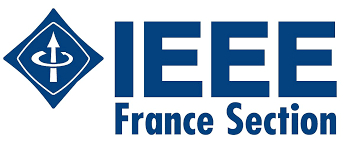Life Members Affinity Group
Quelques faits marquants du Groupe LMAG en 2022 – 2024 / Some highlights of the LMAG activities in 2022 – 2024
-
Conference on May 3, 2022, 05:00 PM to 06:30 PM
Navigation and object tracking with magneto-inertial measures,
by Christophe Prieur (CNRS, Gipsa-lab, FIEEE)
Abstract: This presentation focuses on GPS-free indoor navigation using only strapdown low-cost magneto-inertial sensors and without relying on any prior-mapping of the magnetic field, nor on a dedicated infrastructure. The main idea is to take advantage of the magnetic field’s disturbances present indoor to generate not only a velocity estimate, but also attitude, and position of the moving body under study, enabling therefore the reconstruction of any performed trajectory. To do so, the spatial derivatives of the magnetic field are explored throughout a specific set of a magnetometer array. Different algorithms based on Extended Kalman Filtering (EKF) are implemented, to make use of the proposed model.
-
Conference on December 13, 2022, 05:00 PM to 06:30 PM
Contribution des systèmes flous à l’Intelligence Artificielle Explicable,
by Bernadette Bouchon-Meunier (CNRS-Sorbonne Université, LFIEEE)
Abstract: Explainable Artificial Intelligence has been at the core of many developments in Artificial Intelligence in the recent years, following the DARPA incentives (https://www.darpa.mil/program/explainable-artificial-intelligence) to both produce more explainable artificial intelligence models while maintaining good learning performances, and enable the user to easily interact with intelligent systems. Several related concepts are inherent in the quality of intelligent systems, such as their understandability, their expressiveness or their interpretability. The latter has been in particular extensively investigated in the construction and analysis of fuzzy intelligent systems. We will review several of these aspects, mainly dealing with the capacity of an intelligent system to explain how it obtains results, and to provide the user with easily understandable outcomes, in light of the fuzzy paradigm. We will show that fuzzy models participate effectively in solutions to achieve one or the other of these goals, going beyond classic fuzzy rule-based systems.
-
Event at College de France in Paris on April 3, 2023
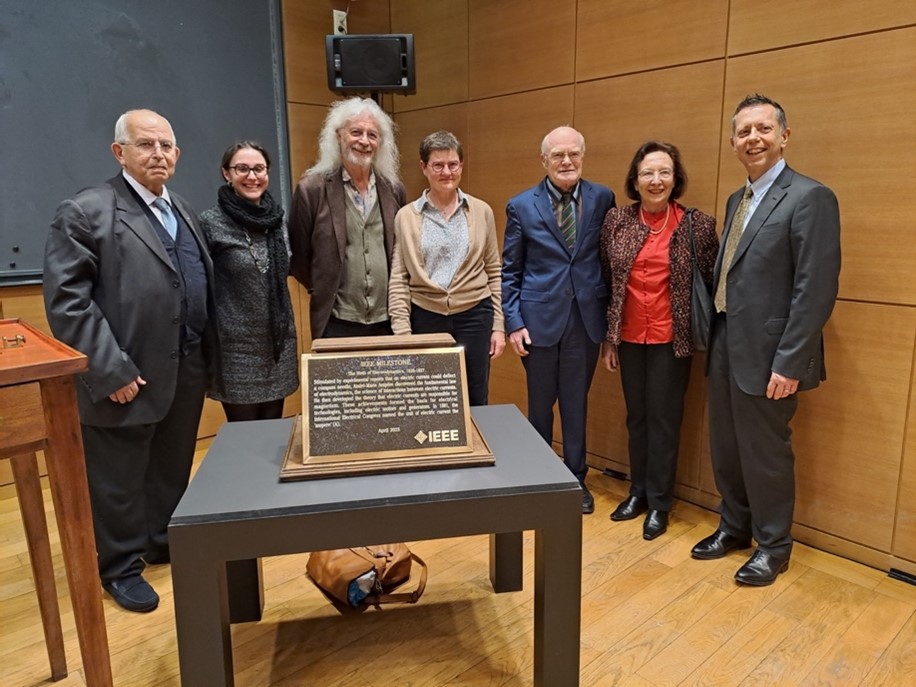
Ceremony at College de France, celebrating the milestone for the Birth of Electrodynamics and A. M. Ampère, April 3, 2023, with Vincenzo Piuri, IEEE R8 Director (right)
-
Event at Ampere Museum in Poleymieux on April 4
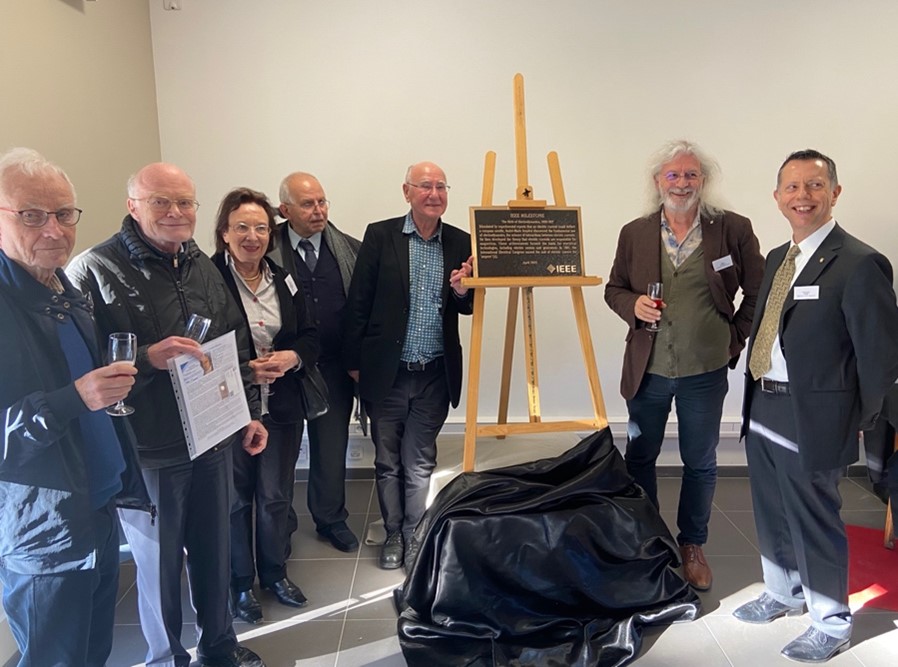
Second ceremony celebrating the milestone for the Birth of Electrodynamics (1820-1827) and A. M. Ampère, at the Ampère Museum in Poleymieux, April 4, 2023, with Vincenzo Piuri, IEEE R8 Director (right)

Attendance at the ceremony in the Ampere Museum on April 4, 2023
-
Event In Paris on September 12, 2023

Meeting with David Bondurant (IEEE Life Member Committee-LMAG Activities Coordinator) on September 12, 2023
-
Event with STMicroelectronics in Grenoble on September 28, 2023

Event celebrating the MPEG Multimedia Integrated Circuits milestone (1984-1993), on the STMicroelectronics site in Grenoble, with Mike Hinchey representing the Region 8 Director (left)
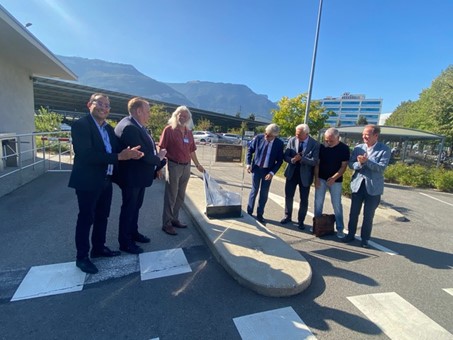
Unveiling of the plaque celebrating the invention of MPEG Multimedia Integrated Circuits (1984-1993) at the STMicroelectornics site on September 28, 2023
-
Event at École supérieure de physique et de chimie industrielles (ERSPCI) in Paris on December 7, 2023
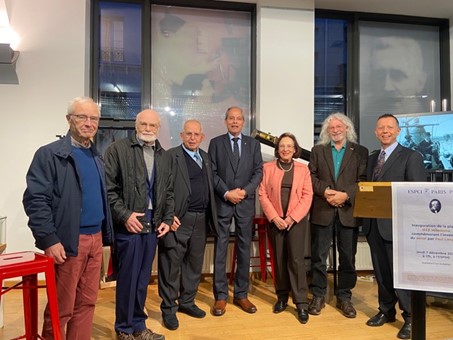
Celebration of the milestone on the Invention of Sonar by Paul Langevin (1915-1918), at École supérieure de physique et de chimie industrielles in Paris, on December 7, 2023, with IEEE President Saifur Rahman (fourth) and IEEE R8 Director Vincenzo Piuri (right)
-
Conference on January 18, 2024, 05:00 PM to 06:30 PM
Modèles et utilité de la notion de conscience,
by Gérard Sabah (Académie des Technologies)
Résumé : Après une présentation rapide de la notion de conscience et l’évocation de certains auteurs qui en ont proposé des modèles, je présenterai son utilité pour le traitement automatique des langues, ainsi que la vision de Jacques Pitrat pour la résolution de problème, avant de conclure par une vision de son rôle dans l’avenir.
-
Conference on March 7, 2024, 05:00 PM to 06:30 PM
Origines de l’IA: a-t-elle incubé à Nancy, Paris à travers la Cybernétique ?
by Mohamed Najim (Université & INP, Bordeaux, LFIEEE)
Abstract: L’orateur abordera les origines de l’IA en mettant en lumière la relation Contrôle/Cybernétique avec les technologies de l’information. Ces dernières trouvent leurs racines dans l’ouvrage de N. Wiener : «Extrapolation, Interpolation and Smoothing of Stationnary Times Series» 1942.
Entretemps après l’explosion de la bombe A à Hiroshima en 1945 Wiener devient antimilitariste et imagine dans Cybernetics, publié en 1948, un monde piloté par les machines qui ne peuvent selon lui conduire à la guerre. Cybernetics a incubé en 1947 en France où Wiener, invité par J. Delastre, Doyen de la Faculté des Sciences Nancy (qui assurait le secrétariat des Bourbakistes) a organisé en juin 1947 un Colloque sur l’analyse harmonique dont la « vedette » a été Norbert Wiener. C’est à Nancy où les collègues français (dont S. Mondelbrot) ont convaincu Wiener de rédiger un livre. Mr Freymann qui dirigeait les Editions Hermann, à Paris, ami de longue date a convaincu Wiener de la publication de ce livre à Paris.
Par ailleurs en 1954, Qian Xuesen, publie aux US une approche plus technique pour la mise en œuvre de la Cybernétique: « Engineering Cybernetics » où il met à profit le concept de « feedback ». Fondateur du Jet Propulsion Lab, il est considéré comme le père de la Nasa et des programmes spatiaux et nucléaires chinois quand il devint conseiller du Pt Mao dès 1956.
La France a été le pays où les débats sur la Cybernétique ont été les plus intenses et la Chine a été son champ d’application le plus intense, ce qui expliquerait peut-être l’usage intensif de l’IA dans la vie quotidienne des Chinois aujourd’hui. Une anthropologue, Professeure à Harvard a ainsi introduit le concept de « sinified cybernetics » (la cybernétique sinisée).
